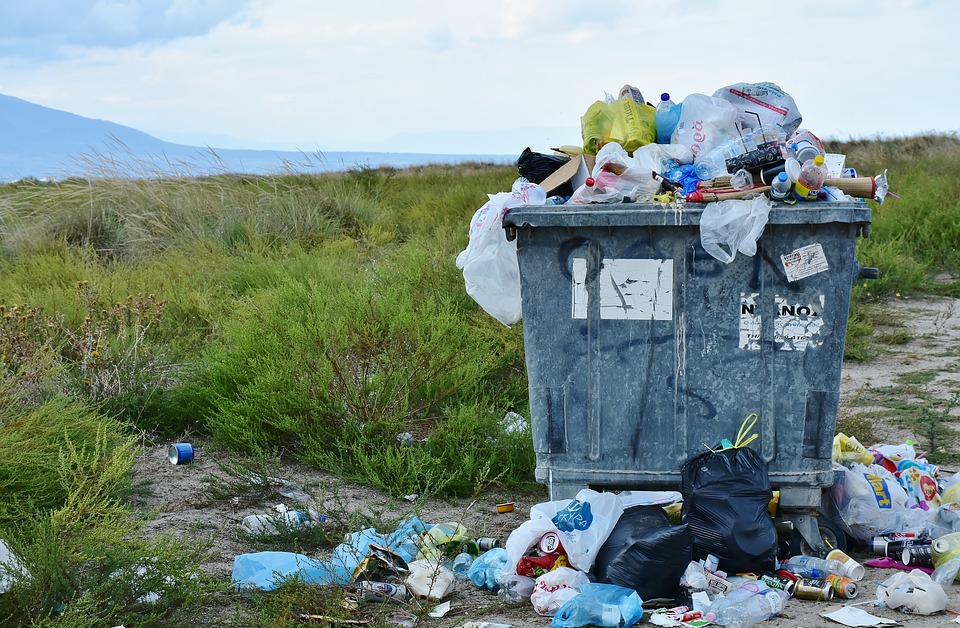Egypt has announced plans to elevate its municipal solid waste (MSW) recycling rate to 60 percent by 2027, a significant rise from 10 percent in 2018 to 37 percent in 2024, the former Environment Minister Yasmine Fouad reported on 18 June.
Building on this ambitious target, the initiative is part of Egypt’s broader circular economy agenda, focused on securing feedstock for organic fertilizers and clean energy solutions. Central to this transformation lies Egypt’s Waste Management Law (No. 202/2020), which has played a pivotal role in attracting private‑sector investment.
At the system’s outset in 2018, only two private contracts were in place in the recycling sector; today, that number has soared to 36, covering waste collection, transportation, treatment, and recycling, many deployed simultaneously across multiple governorates.
The growing involvement of the private sector has paved the way for a wave of innovative projects. Among them, waste-to-energy initiatives are showcasing technological advances currently underway, such as the conversion of landfill gas into energy at the Al-Salam and Hammam landfills, with estimated investments of USD 40 million (EGP 1.95 billion).
Alongside the landfill gas projects, wastewater treatment and waste recycling plants further illustrate Egypt’s multi-pronged approach to sustainable waste management. The Abu Rawash wastewater treatment plant in Cairo, Egypt’s second-largest, treats and recycles 1.6 million cubic meters of wastewater per day, focusing on sludge reuse for agricultural and industrial purposes. Meanwhile, new waste-to-energy and recycling facilities signal expanding capacities.
Zero Carbon Ventures, an Emirati low-carbon solutions provider, and Egyptian waste management company Green Planet have joined forces to launch a joint waste-to-energy plant, Zero Carbon Green Planet (ZCGP), at Cairo’s 15 May landfill. The facility is designed to process 400 tonnes of organic waste daily into graphene, hydrogen, and fertilizer. The first phase is already up and running, with full completion slated for 2027.
Meanwhile, in Assiut, a new EGP 250 million (USD 5.12 million) waste recycling plant equipped with German-Dutch technology has been launched, featuring two high-capacity mechanical processing lines with a combined capacity of 60 tons per hour, expected to be completed by 2026.
Beyond environmental gains, these reforms carry significant economic benefits, including the creation of 250 jobs at ZCGP and broader employment growth across sectors such as logistics, recycling, technology, and operations.
Aiming to build a sustainable, integrated waste system, the National Solid Waste Management Program (NSWMP) is supporting local NGOs and expanding recycling infrastructure in Assiut, creating jobs, empowering communities, and helping bring informal waste workers into the formal economy.
Nonetheless, a large share of Egypt’s MSW is still either openly dumped or burned, with only a limited amount properly sent to landfills. Although some waste does reach official disposal sites, a significant portion is improperly discarded in public spaces and water bodies. Recycling is mostly carried out through informal systems that concentrate on gathering materials with resale value.
Cairo’s Zabbaleen, meaning garbage collectors, is an informal community that has long played a vital role in waste collection and recycling. In Cairo’s Manshiyat Naser neighborhood, widely known as Garbage City, trash lines the streets, overflows from doorways, and accumulates atop buildings. Nearly all residents are engaged in waste-related labor, from collection and transport to sorting, washing, and processing. Through these informal systems, the community recycles more than 80 percent of the garbage it gathers.
Despite their contributions, the Zabbaleen face growing pressures. Government reforms and regulatory shifts, aimed at streamlining and modernizing the waste sector, seek to bring the sector under tighter control, often at the expense of its traditional role.
At the same time, Egypt’s waste management system is evolving to include formal structures alongside these informal networks. The formal sector brings together government agencies, such as the Waste Management Regulatory Authority (WMRA), private firms, and non-governmental organizations, such as the Central Agency for Organization and Management (CAOA), deploying new technologies and upgrading infrastructure to reduce pollution, support recycling, and align with global environmental standards.
To promote long-term impact, Egypt has introduced an Extended Producer Responsibility (EPR) scheme: a policy that shifts the burden of post-consumer waste from the public sector to producers. Under this approach, companies are required to manage the collection, recycling, and safe disposal of their products, beginning with plastic bags.
Former minister Fouad also acknowledged gains beyond recycling, including an increase in collection efficiency from 60 percent to approximately 74 percent, and rapid expansion of infrastructure in key governorates such as Giza and Qalyubia. Such developments mark significant steps forward in the country’s broader environmental strategy and signal continued momentum toward sustainable waste management practices.







Comments (0)